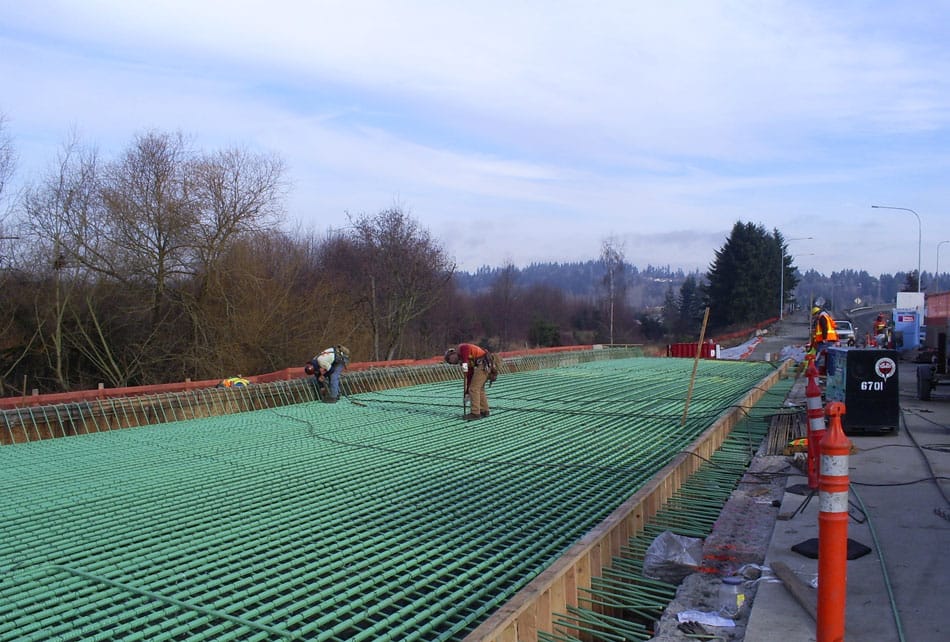
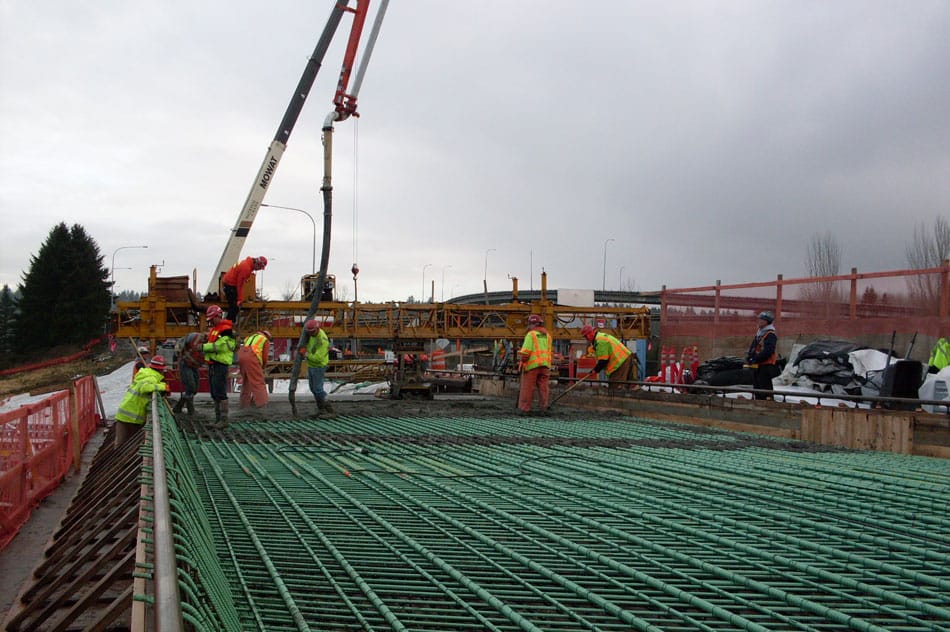
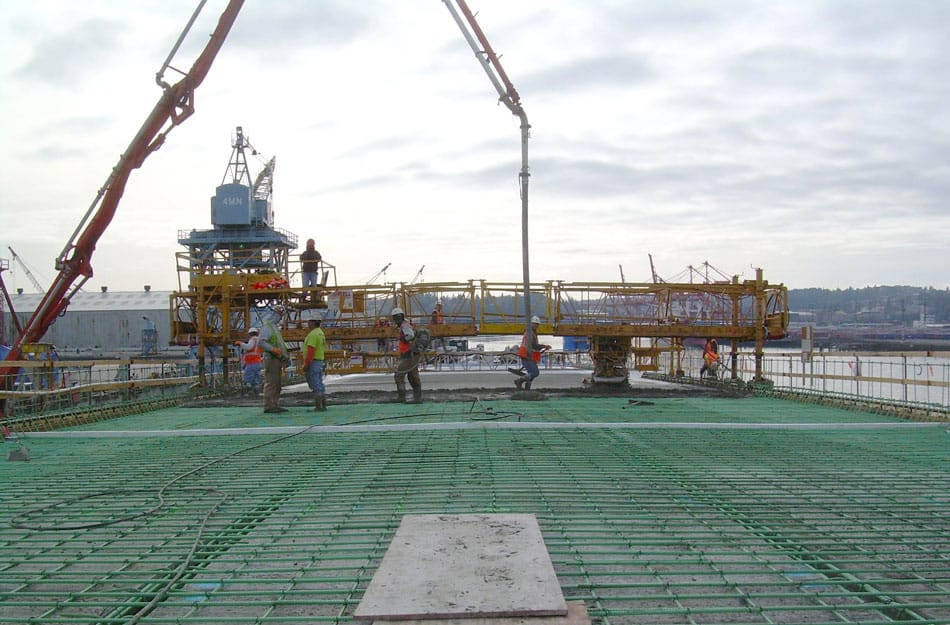
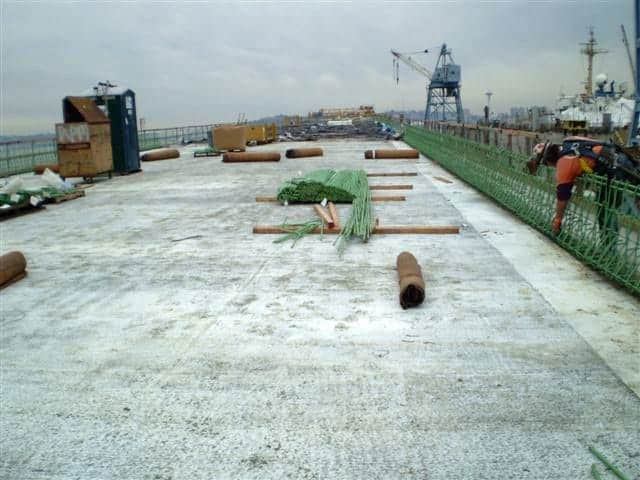
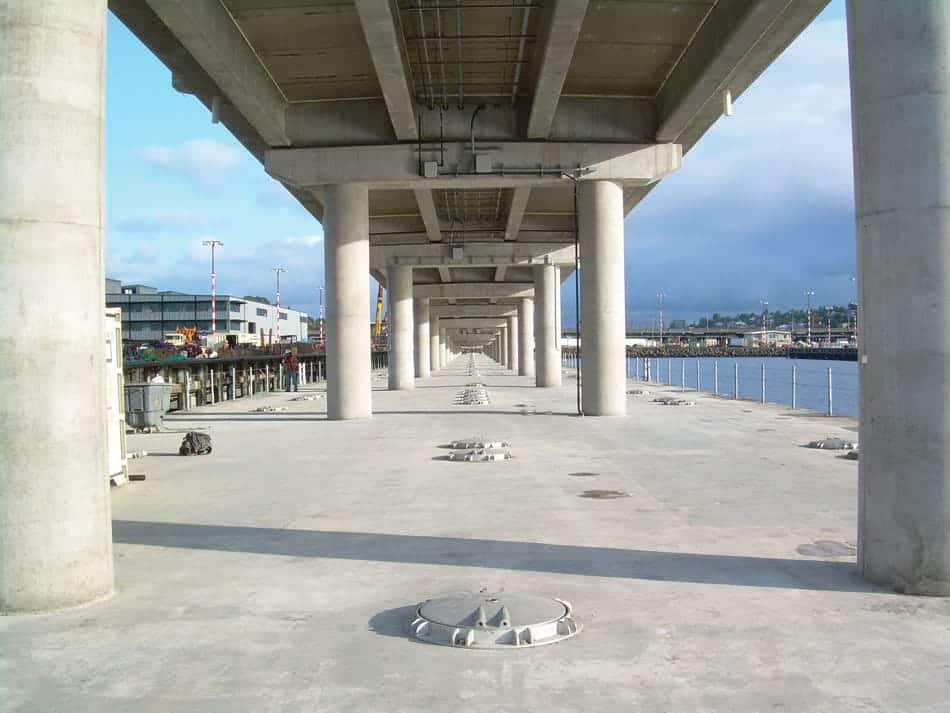
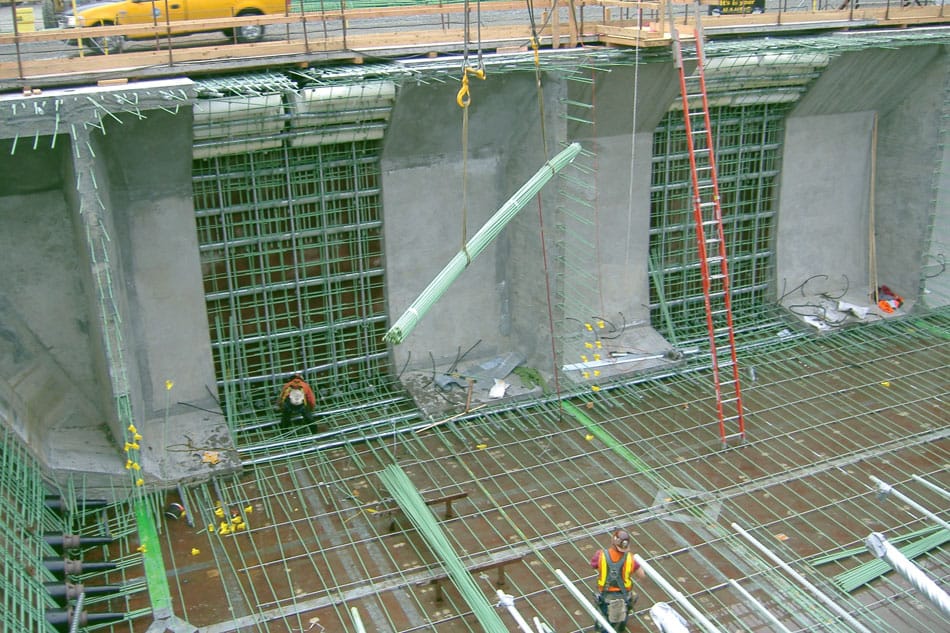

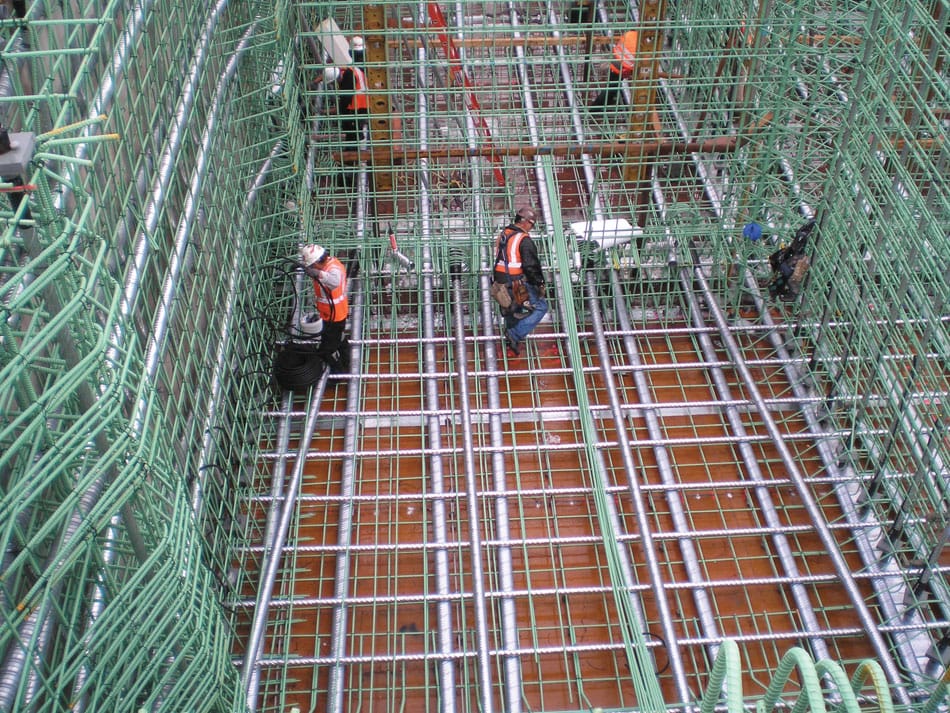
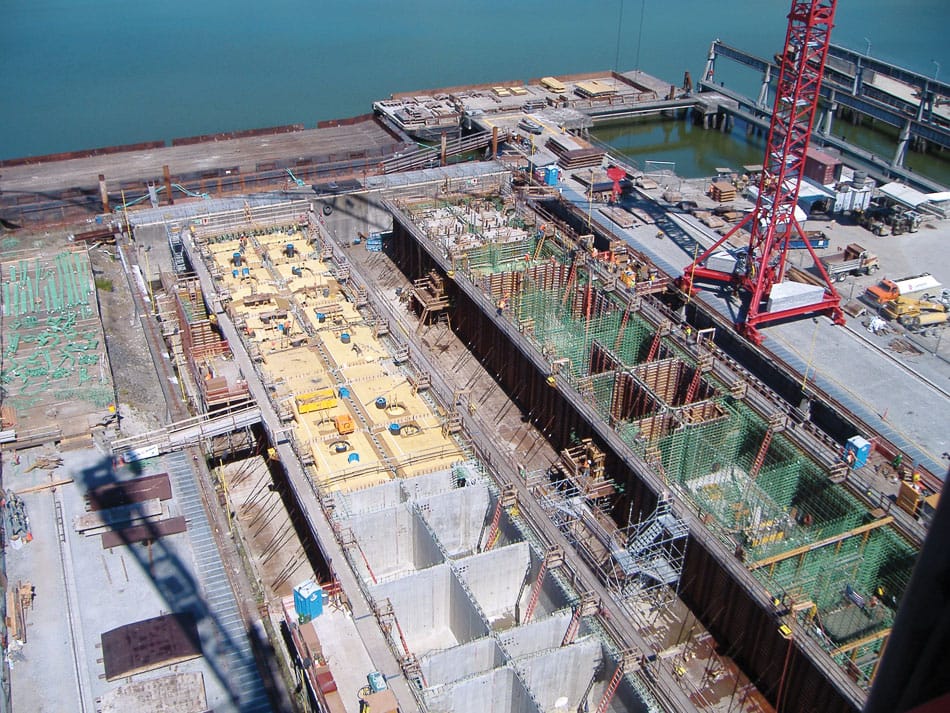
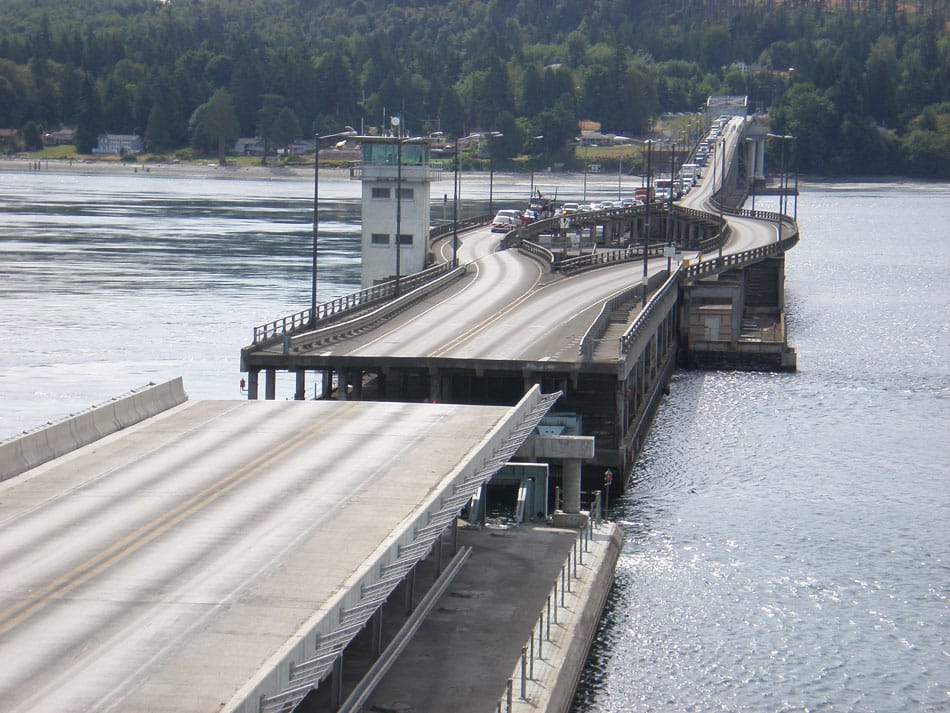
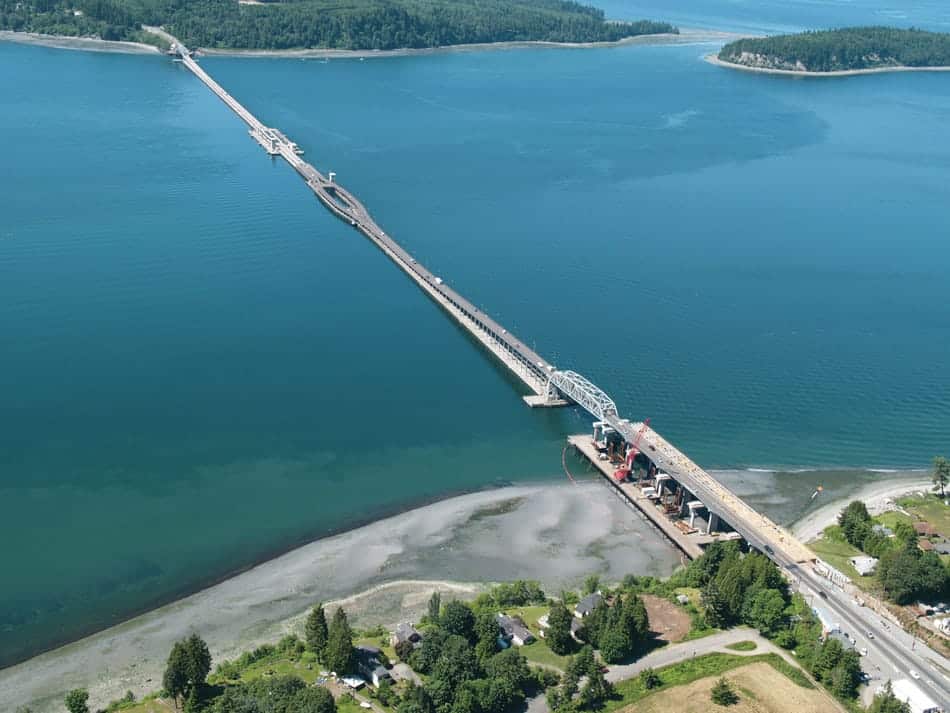
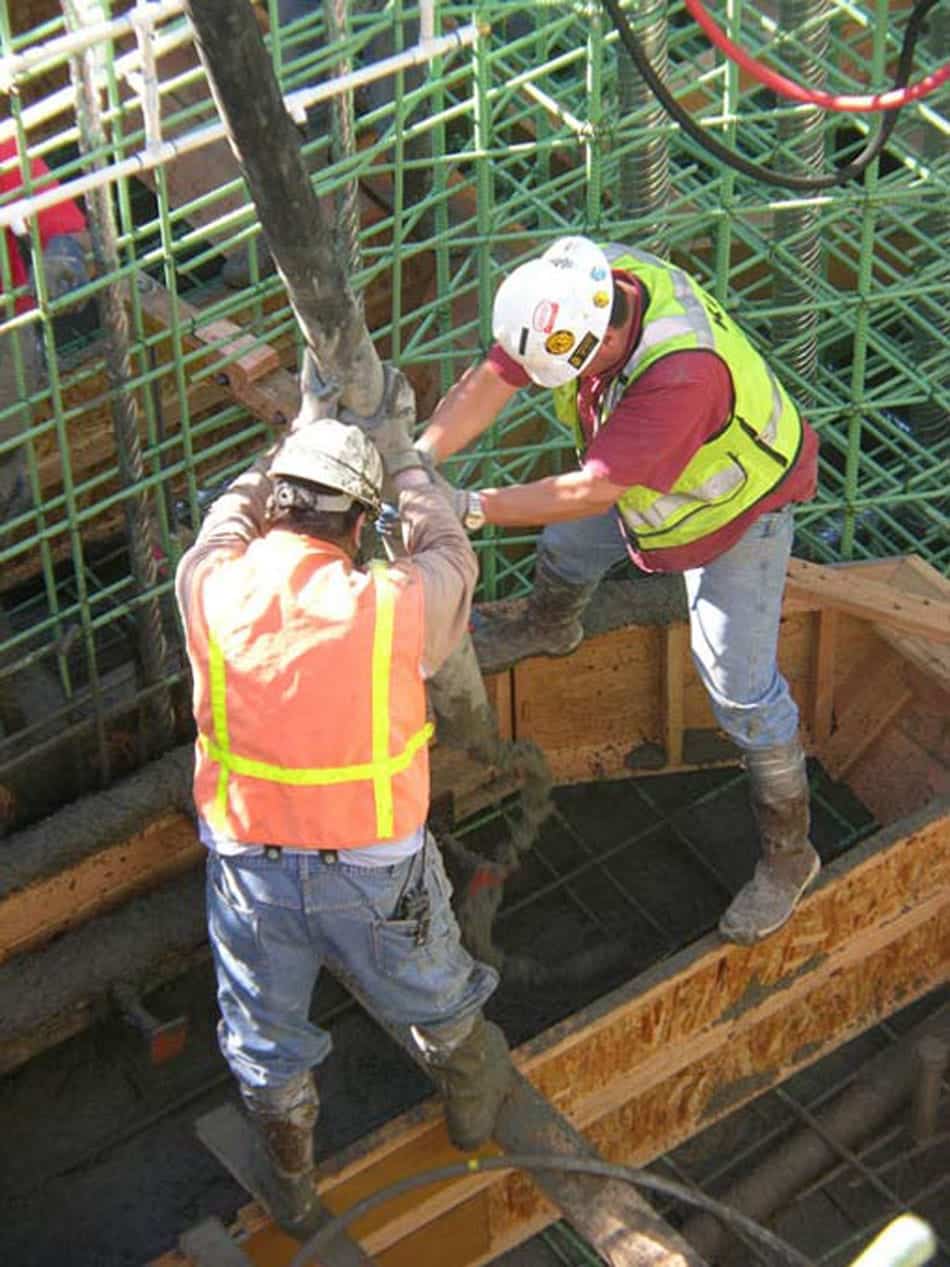
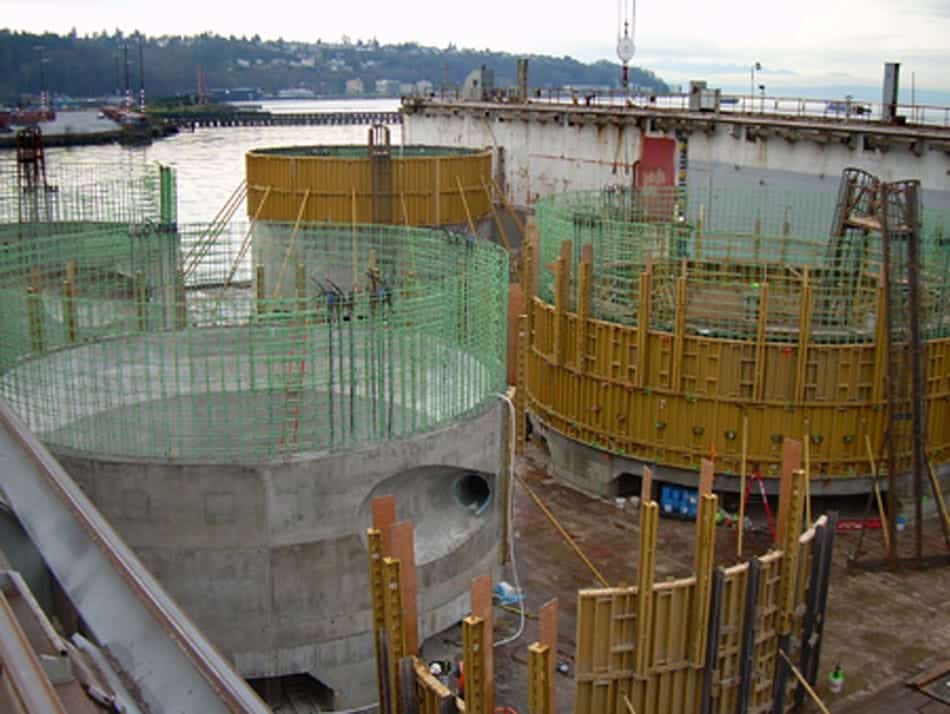
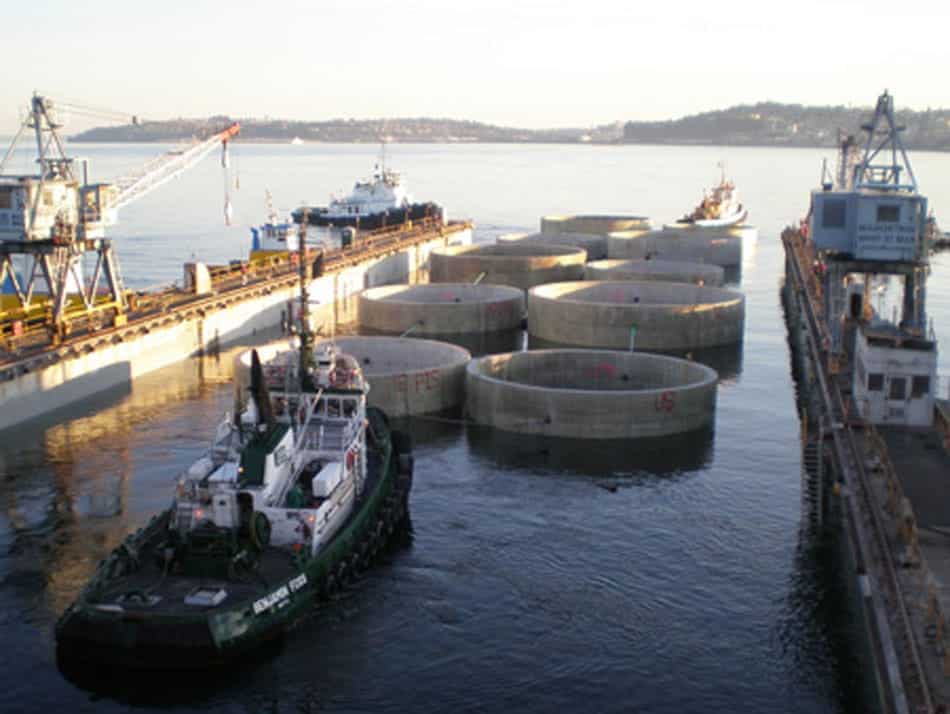
HOOD CANAL BRIDGE
Olympic Peninsula, WA and Kitsap Peninsula, WA
PROJECT DETAILS
- City:Olympic and Kitsap Peninsulas
- State:WA
- Design Criteria:– Provide a cost-effective deep channel crossing in a high seismic region– Design a replacement bridge with a 600 ft draw span to allow for shipping
- Owner:Washington State Department of Transportation
- Designer:Washington State Department of Transportation
- General Contractor:Kiewit-General
- Epoxy-Coated Reinforcing Steel:4,000 tons
- Total Cost:$500 million
- Project Management:Parametrix
- Length:7,869 ft
- Width:70 ft
- Year Completed:June 2009
- Traffic:16,500 vehicles per day
The Hood Canal Bridge carries Washington State Route 104 across Hood Canal connecting the Olympic and Kitsap Peninsulas. The bridge, first opened in 1961, provides a vital link between these two peninsulas, carrying approximately 16,500 vehicles per day. The 7,869 ft long bridge has a 600 ft draw span to allow for shipping.
A floating bridge was chosen for this location as the canal is up to 340 ft deep and soils in the area are deep and soft. The bridge is also located in a high seismic region. It is the third longest floating bridge overall and only one of 11 floating bridges, worldwide.
The original floating bridge was built between 1958 and 1961; however in 1979 the west-side of the structure overturned due to high winds from the south and currents from the north. A replacement section was opened in 1982, containing over 6,000 ton of epoxy-coated reinforcing steel.
Between 2003 and 2009, Washington State Department of Transportation (WSDOT) replaced the 1961 era east-half floating portion of the bridge along with the east and west approach spans and transition spans at a cost of almost $500 million.
Fourteen pontoons were constructed with the largest measuring over 60 ft wide, 18 ft tall and 360 ft long. These pontoons were cast using over 30,000 cubic yards of concrete and 2400 ton of epoxy-coated reinforcing steel. The self-compacting concrete used had a nominal compressive strength of 6,500 psi and a 22 in. spread, using fly ash and silica fume to reduce chloride permeability. After casting, the pontoons were transported from Tacoma by tugboat through Puget Sound to Hood Canal for assembly alongside the existing bridge.